Premium Truck Bed Rubber Mat: Non-Slip & Durable Protection
Elevating Vehicle Performance and Protection: The Strategic Role of Truck Bed Rubber Mats in Modern Logistics
In the rapidly evolving landscape of commercial transportation and logistics, the integrity of cargo and the durability of fleet assets are paramount. Businesses, from construction to last-mile delivery, are increasingly recognizing the indispensable value of specialized protective solutions for their vehicles. At the forefront of these innovations is the truck bed rubber mat, a critical component designed to safeguard both the truck bed and its contents against the rigors of daily operation. The global market for automotive accessories, including robust protective mats, continues to exhibit steady growth, driven by heightened demand for vehicle longevity, cargo security, and operational efficiency across diverse industries. Trends indicate a clear shift towards materials offering superior resilience, anti-slip characteristics, and environmental sustainability. Manufacturers are investing heavily in research and development to produce mats that withstand extreme temperatures, resist chemical degradation, and offer exceptional vibration dampening, crucial for protecting sensitive equipment and fragile goods during transit. This strategic adoption of high-performance rubber mats for truck beds not only extends the service life of vehicles but also significantly reduces maintenance costs and minimizes the risk of product damage, translating directly into enhanced profitability for businesses. The focus on high-density formulations and precise dimensions, such as the 4mm thickness and 141.5×205cm C-type configuration, underscores a commitment to engineered solutions that meet specific industrial requirements, ensuring a perfect fit and optimal performance for light trucks and pickups engaged in demanding professional tasks.
Unpacking the Technical Specifications: High-Density Rubber Mat Excellence
The effectiveness of a rubber mats for pickup beds is primarily dictated by its material composition and precise technical specifications. Our High Density Light Truck Bed Rubber Mat, specifically the 4mm 141.5×205cm C-type model, exemplifies engineering excellence tailored for demanding B2B applications. This mat is engineered from a proprietary blend of high-density rubber compounds, carefully formulated to achieve a superior balance of durability, flexibility, and impact resistance. The 4mm thickness is a deliberate choice, providing substantial cushioning and protection without adding excessive weight, thus preserving vehicle payload capacity and fuel efficiency. A critical parameter for rubber products is Durometer hardness, typically ranging from 60 to 70 Shore A for optimal balance between resilience and grip. The density of the material, often around 1.3 to 1.5 g/cm³, signifies its robust composition, ensuring long-term wear resistance against abrasions, punctures, and tearing. Furthermore, these mats are designed to operate effectively across a broad temperature range, commonly from -30°C to +80°C, making them suitable for diverse climates and operational environments. They exhibit excellent tensile strength, crucial for resisting stretching and deformation under heavy loads, and superior elongation at break, indicating their capacity to absorb impact without fracturing. The specific dimensions of 141.5×205cm for the C-type are meticulously calibrated to fit a wide array of popular light truck beds, minimizing trimming and ensuring a seamless installation. This meticulous attention to material science and dimensional accuracy guarantees that the rubber bed mat delivers consistent, high-performance protection, translating directly into reduced operational costs and enhanced asset preservation for fleet managers.
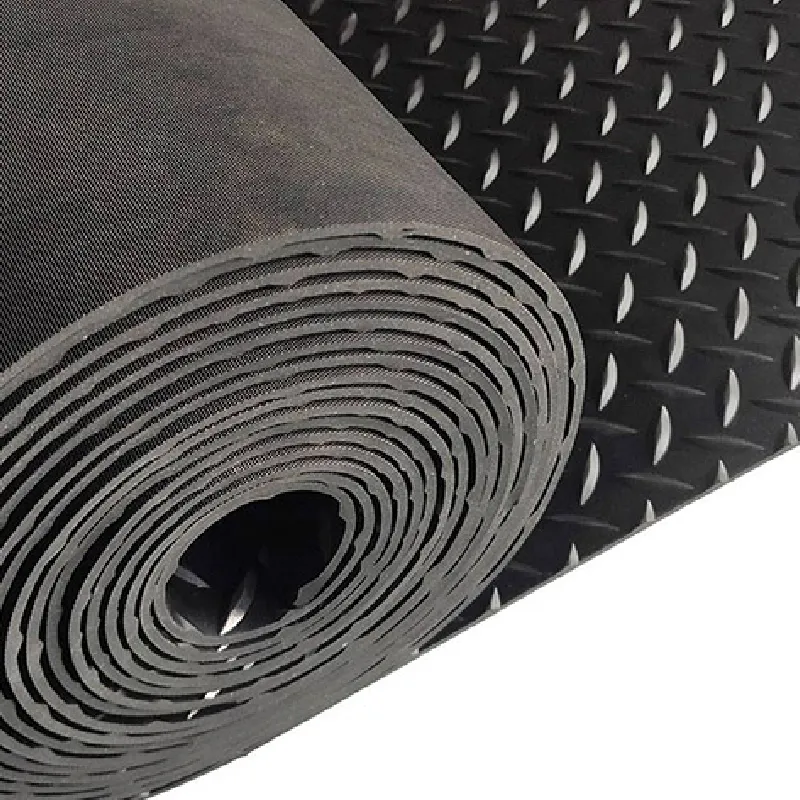
Key Technical Parameters: High Density Light Truck Bed Rubber Mat (4mm, C-type)
| Parameter | Specification | Unit/Description |
|---|---|---|
| Material Composition | High-Density Industrial Rubber Blend | Optimized for durability and resilience |
| Thickness | 4 | mm |
| Dimensions (L×W) | 205 × 141.5 | cm (C-type configuration) |
| Density | ~1.45 | g/cm³ |
| Hardness (Shore A) | 65 ± 5 | ASTM D2240 |
| Tensile Strength | ≥ 5 | MPa (ASTM D412) |
| Elongation at Break | ≥ 200 | % (ASTM D412) |
| Operating Temperature | -30°C to +80°C | Ideal for diverse climates |
| Anti-slip Coefficient | ≥ 0.8 (Dry) | ASTM F1677, enhanced safety |
| Chemical Resistance | Good against common oils, solvents, mild acids | Dependent on specific chemical |
Crafting Excellence: The Manufacturing Journey of a Premium Rubber Mat
The production of a high-quality rubber pickup bed mat is a meticulous process, demanding stringent control at every stage to ensure the final product meets exacting performance standards. The journey begins with the careful selection and compounding of raw materials. High-density rubber granules, often derived from recycled tires or virgin synthetic rubber polymers like SBR (Styrene Butadiene Rubber) or EPDM (Ethylene Propylene Diene Monomer), are precisely mixed with reinforcing fillers (e.g., carbon black, silica), vulcanizing agents (sulfur), accelerators, and anti-degradants. This compounding phase is critical, determining the mat's ultimate physical properties, including hardness, tensile strength, and resistance to environmental factors. Following compounding, the mixture undergoes a process called calendering or extrusion, where the rubber compound is formed into continuous sheets of the desired thickness, in this case, 4mm. These sheets are then cut to pre-defined dimensions, preparing them for the molding phase. The primary manufacturing process for these mats is compression molding and vulcanization. The pre-cut rubber blanks are placed into heated molds designed to impart the specific C-type shape and surface patterns (e.g., anti-slip textures). Under immense pressure and controlled temperature, the rubber undergoes vulcanization, a chemical process that cross-links the polymer chains, transforming the material from a plastic, malleable state into a durable, elastic thermoset rubber. This irreversible change gives the mat its permanent shape, resilience, and superior physical properties. Post-molding, each mat undergoes rigorous trimming and finishing to remove any flash or excess material. Quality control is integrated throughout the process, with critical inspections including dimensional accuracy checks, hardness testing, visual inspection for defects, and adherence to international standards such as ISO 9001 for quality management systems and ASTM standards for material properties (e.g., ASTM D2240 for hardness, ASTM D412 for tensile strength). This comprehensive manufacturing and quality assurance regimen ensures that each rubber bed mat destined for a truck bed will deliver an extended service life, typically ranging from 5 to 10 years depending on usage, making them a sustainable and cost-effective investment for industries ranging from construction and agricultural logistics to general freight and municipal services.
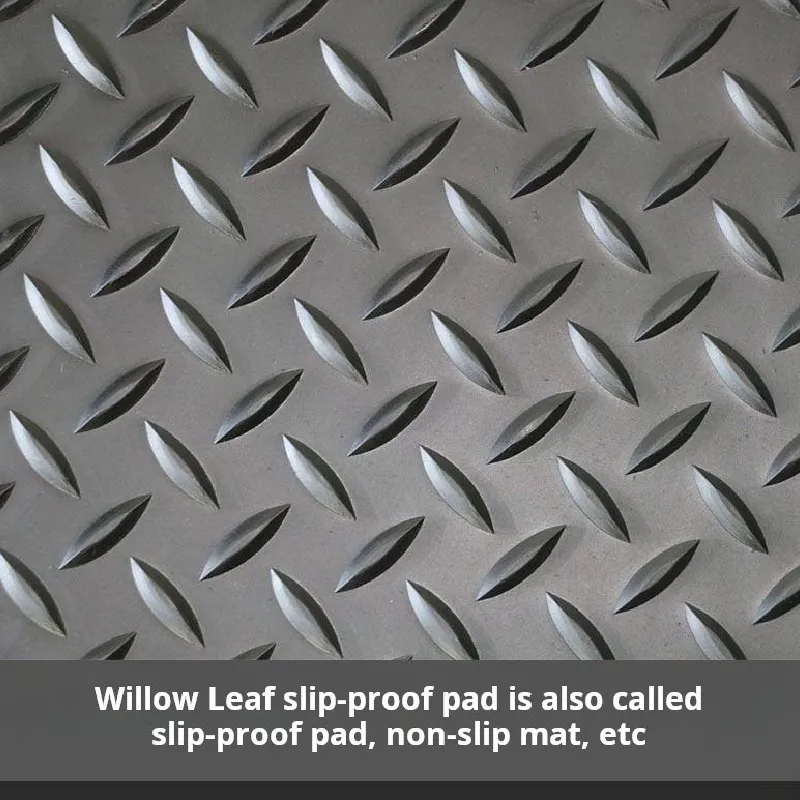
Diverse Applications and Unparalleled Technical Advantages of Truck Bed Rubber Mats
The utility of a robust truck bed rubber mat extends across a multitude of industries and operational scenarios, making it an indispensable asset for businesses prioritizing efficiency and asset protection. In the logistics sector, these mats are crucial for safeguarding valuable cargo during transport, preventing shifting, scratching, and impact damage that can occur on an unprotected metal truck bed. For construction companies, they provide a durable barrier against abrasive materials like gravel, tools, and heavy equipment, mitigating wear and tear on the truck bed itself and extending its lifespan. Agricultural enterprises utilize them to protect truck beds from corrosive fertilizers, sharp farming implements, and animal waste. Even utility service providers and mobile workshops benefit from the anti-slip surface, ensuring tools and equipment remain securely in place, enhancing safety and operational readiness. The technical advantages offered by a high-density rubber mats for truck beds are multifaceted. Firstly, superior cargo protection is achieved through its cushioning properties, absorbing shocks and vibrations that could otherwise damage sensitive or fragile items. Secondly, its high coefficient of friction provides exceptional anti-slip capabilities, preventing items from sliding around during sudden stops or turns, which is critical for both cargo safety and adherence to transport regulations. Thirdly, these mats act as effective sound dampeners and vibration isolators, reducing road noise and resonance within the truck cabin, contributing to a more comfortable and less fatiguing driving experience for fleet personnel. Furthermore, the inherent water and chemical resistance of industrial-grade rubber makes these mats easy to clean and impervious to common spills, including oils, fuels, and mild chemicals. Unlike spray-on liners which are permanent and can crack, or carpet mats which absorb moisture and harbor odors, a quality rubber mat is easily removable for deep cleaning and offers superior long-term durability, making it a sustainable and cost-effective solution that contributes directly to a healthier operational bottom line by reducing damage claims and vehicle depreciation.
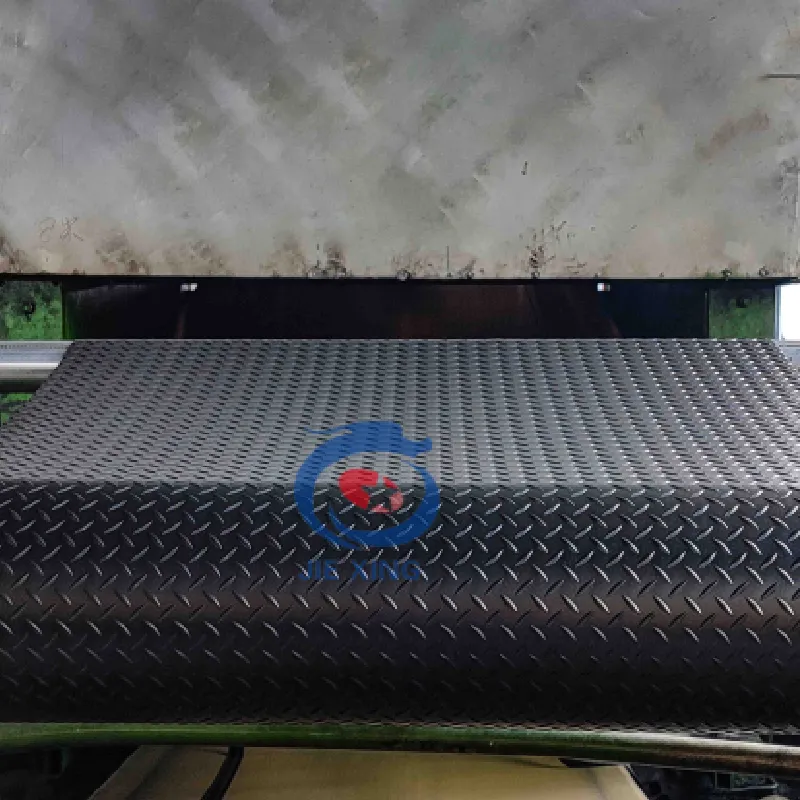
Strategic Sourcing and Tailored Customization for Your Fleet Needs
For B2B decision-makers, selecting the right supplier for rubber mats for pickup beds involves more than just price comparison; it requires a comprehensive evaluation of manufacturing capabilities, quality assurance protocols, and the ability to offer tailored solutions. A reputable manufacturer will possess certifications like ISO 9001, demonstrating a commitment to consistent quality management. Their experience in the industry, evidenced by years of service and a robust portfolio of successful projects, speaks to their understanding of diverse client needs and production expertise. Investing in suppliers with strong R&D capabilities ensures access to cutting-edge materials and manufacturing techniques, leading to products with superior performance and longevity. Beyond standard offerings, the true value for commercial fleets often lies in the availability of customization solutions. While our High Density Light Truck Bed Rubber Mat (4mm 141.5×205cm C type) is designed for broad compatibility, specific fleet requirements may necessitate bespoke modifications. This includes custom dimensions and shapes to perfectly fit less common truck models or integrated fleet utility systems. Tailored thickness options might be required for exceptionally heavy-duty applications or specific vibration dampening needs. Surface patterns can be customized to enhance grip for unique cargo types or incorporate company branding for a professional appearance. Material blends can also be adjusted to imbue the mats with enhanced resistance to specific chemicals, oils, or extreme temperatures pertinent to niche industries like petrochemical logistics or specialized waste management. Manufacturers capable of fulfilling these custom orders provide significant value, ensuring that the rubber bed mat integrates seamlessly into existing operations, optimizing performance and maximizing ROI. For bulk orders, discussions around consistent quality control, reliable supply chain management, and scalable production capacities become paramount, assuring fleet managers of uninterrupted supply and uniform product quality across their entire vehicle inventory, cementing a partnership based on trust and mutual benefit.
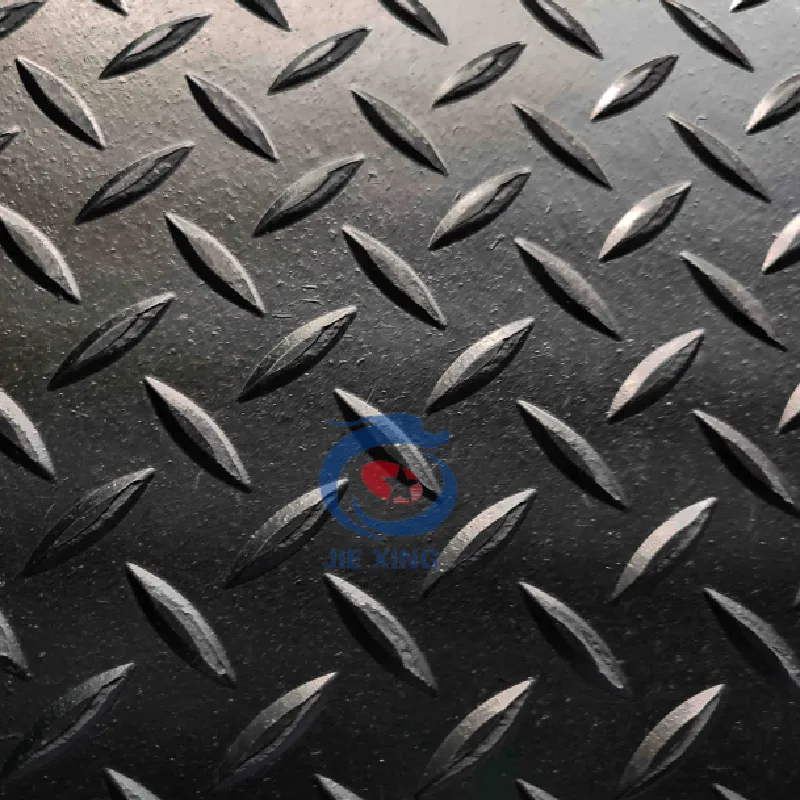
Real-World Impact: Application Cases and Quantifiable Performance Data
The tangible benefits of deploying high-quality truck bed rubber mat solutions are best illustrated through real-world application cases and measurable performance data. Consider a regional delivery fleet transporting delicate electronics. Without proper bed protection, goods are susceptible to vibrations and impacts, leading to a 3-5% damage rate annually. Implementing a high-density rubber mat reduces this rate to below 0.5%, yielding significant savings in replacement costs and enhanced customer satisfaction. In another scenario, a construction company routinely transports heavy, abrasive materials like rebar and concrete blocks. An unprotected truck bed typically shows significant wear and corrosion within 1-2 years, necessitating costly repairs or early vehicle replacement. With the installation of a robust rubber mats for truck beds, the lifespan of the truck bed extends to over 7 years, deferring capital expenditure and maintaining vehicle resale value. Performance metrics consistently underscore these advantages. For example, laboratory tests demonstrate that a 4mm high-density rubber mat can absorb up to 70% of impact energy from dropped objects, compared to 10-20% for unlined metal beds. The anti-slip coefficient, crucial for preventing cargo shift, typically registers above 0.8 (dry static) and 0.6 (wet static) as per ASTM F1677, providing superior grip compared to bare steel's 0.4-0.5. Noise reduction is another measurable benefit, with a typical 5-10 dB decrease in cabin noise from bed resonance. Fleet operators report a significant reduction in employee injuries related to shifting cargo, improving workplace safety and reducing liability. The return on investment (ROI) for these mats is often realized within the first year through reduced cargo damage claims, minimized truck bed maintenance, and extended vehicle longevity. These quantifiable improvements in operational efficiency, safety, and asset preservation underscore the strategic imperative for businesses to invest in engineered rubber pickup bed mat solutions as a core component of their fleet management strategy, driving both immediate cost savings and long-term value.
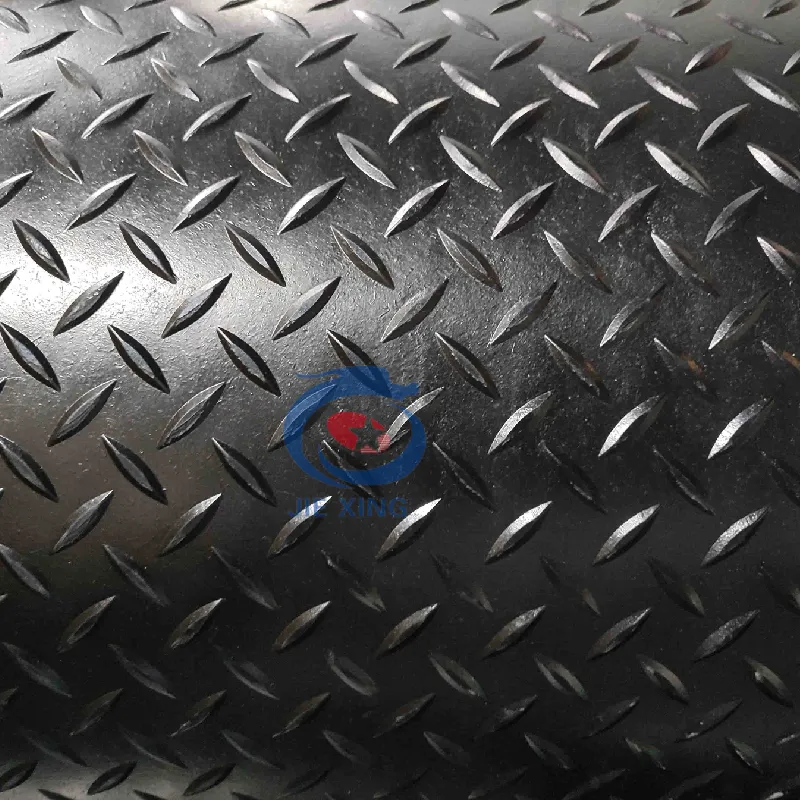
Ensuring Trust and Reliability: FAQs and Our Commitment to Your Business
Understanding the comprehensive value proposition of a rubber bed mat involves addressing common inquiries from B2B clients, ensuring transparency and building trust. Our commitment extends beyond product delivery, encompassing a holistic approach to customer support and satisfaction. We frequently encounter questions regarding installation: our mats are designed for drop-in installation, requiring no special tools or adhesives, typically taking minutes to secure. Maintenance queries are also common; these mats are exceptionally low-maintenance, requiring only routine cleaning with water and mild detergent to remove dirt or spills, ensuring hygiene and prolonging aesthetic appeal. Concerns about chemical resistance are addressed by the high-density rubber blend, formulated to resist common automotive fluids, oils, and mild industrial chemicals, though specific resistances can be confirmed through material data sheets. In terms of lifespan, under normal operational conditions and proper care, our mats are engineered to provide reliable service for 5 to 10 years, offering a significant long-term return on investment. For customized orders, our typical lead time ranges from 4 to 8 weeks, dependent on complexity and order volume, with dedicated project managers providing regular updates. We pride ourselves on a robust quality assurance program, adhering to international standards such as ISO 9001:2015, ensuring every truck bed rubber mat meets stringent performance criteria before leaving our facility. Furthermore, we offer a comprehensive warranty against manufacturing defects, providing peace of mind and demonstrating our confidence in product durability. Our dedicated B2B customer support team is readily available to assist with technical specifications, order inquiries, and post-sales support, ensuring a seamless experience from initial consultation to long-term operational success. This commitment to quality, support, and reliability ensures that your investment in our high-density rubber mats for truck beds is a strategic decision that fortifies your fleet's operational efficiency and longevity.
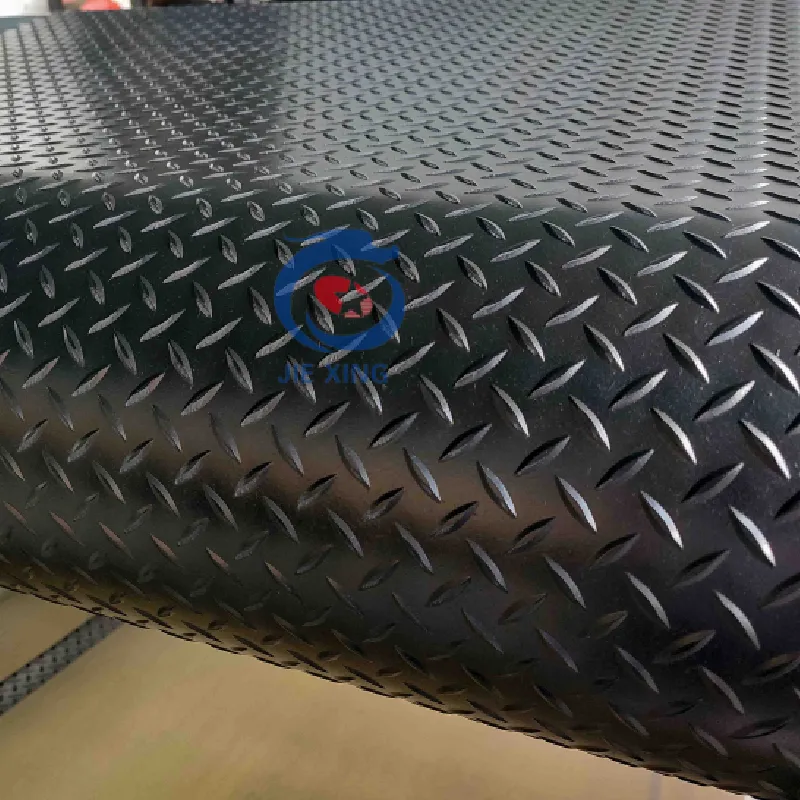
Frequently Asked Questions (FAQs)
- Q: What is the typical installation time for the High Density Light Truck Bed Rubber Mat?
A: Installation is typically under 5 minutes, as the mat is designed for a direct drop-in fit, requiring no tools or adhesives. - Q: How does the 4mm thickness contribute to durability and protection?
A: The 4mm thickness provides an optimal balance of robust cushioning for cargo protection, significant vibration dampening, and excellent resistance to wear and tear from heavy loads and abrasive materials, without adding excessive weight. - Q: Are these mats resistant to fuel and oil spills?
A: Yes, our high-density rubber compound is formulated to provide good resistance to common automotive fluids, including gasoline, diesel, and motor oils, making cleanup easy and preventing degradation of the mat. - Q: What are the benefits of the C-type dimension (141.5×205cm)?
A: The C-type dimension is specifically engineered to ensure a precise, near-custom fit for a wide range of popular light truck models, minimizing gaps and maximizing coverage, which enhances both protection and aesthetic integration. - Q: What is the estimated service life of the truck bed rubber mat?
A: With proper use and maintenance, our high-density rubber mats are engineered to provide reliable service for an extended period, typically between 5 to 10 years, depending on the severity of operational conditions.
Conclusion and Authoritative References
In conclusion, the strategic integration of a high-density rubber mats for truck beds is not merely an accessory but a critical investment for businesses operating in logistics, construction, agriculture, and various service industries. Products like our High Density Light Truck Bed Rubber Mat, with its precise 4mm thickness and C-type dimensions, offer unparalleled protection for vehicle assets and cargo, enhance operational safety through superior anti-slip properties, and contribute significantly to overall cost reduction through reduced maintenance and extended vehicle lifespans. The meticulous manufacturing process, adherence to rigorous quality standards, and the capability for tailored customization underscore the technical sophistication and reliable performance these mats deliver. By choosing a solution engineered for resilience, chemical resistance, and ease of maintenance, businesses can optimize their fleet's efficiency, safeguard valuable goods, and ensure a higher level of safety for their personnel. This commitment to engineered excellence provides a tangible competitive advantage, positioning companies for long-term success in demanding commercial environments where every operational detail matters.
References
- ASTM International. (2023). Standard Test Method for Rubber Properties in Tension (ASTM D412).
- International Organization for Standardization. (2015). Quality Management Systems – Requirements (ISO 9001:2015).
- National Institute of Standards and Technology. (2022). Research on Slip Resistance of Floor Materials.
- Society of Automotive Engineers. (2021). Surface Vehicle Recommended Practice for Materials and Processes.
- Rubber & Plastics News. (2023). Market Trends and Innovations in Industrial Rubber Products.
Elevating Vehicle Performance and Protection: The Strategic Role of Truck Bed Rubber Mats in Modern Logistics
In the rapidly evolving landscape of commercial transportation and logistics, the integrity of cargo and the durability of fleet assets are paramount. Businesses, from construction to last-mile delivery, are increasingly recognizing the indispensable value of specialized protective solutions for their vehicles. At the forefront of these innovations is the truck bed rubber mat, a critical component designed to safeguard both the truck bed and its contents against the rigors of daily operation. The global market for automotive accessories, including robust protective mats, continues to exhibit steady growth, driven by heightened demand for vehicle longevity, cargo security, and operational efficiency across diverse industries. Trends indicate a clear shift towards materials offering superior resilience, anti-slip characteristics, and environmental sustainability. Manufacturers are investing heavily in research and development to produce mats that withstand extreme temperatures, resist chemical degradation, and offer exceptional vibration dampening, crucial for protecting sensitive equipment and fragile goods during transit. This strategic adoption of high-performance rubber mats for truck beds not only extends the service life of vehicles but also significantly reduces maintenance costs and minimizes the risk of product damage, translating directly into enhanced profitability for businesses. The focus on high-density formulations and precise dimensions, such as the 4mm thickness and 141.5×205cm C-type configuration, underscores a commitment to engineered solutions that meet specific industrial requirements, ensuring a perfect fit and optimal performance for light trucks and pickups engaged in demanding professional tasks.
Unpacking the Technical Specifications: High-Density Rubber Mat Excellence
The effectiveness of a rubber mats for pickup beds is primarily dictated by its material composition and precise technical specifications. Our High Density Light Truck Bed Rubber Mat, specifically the 4mm 141.5×205cm C-type model, exemplifies engineering excellence tailored for demanding B2B applications. This mat is engineered from a proprietary blend of high-density rubber compounds, carefully formulated to achieve a superior balance of durability, flexibility, and impact resistance. The 4mm thickness is a deliberate choice, providing substantial cushioning and protection without adding excessive weight, thus preserving vehicle payload capacity and fuel efficiency. A critical parameter for rubber products is Durometer hardness, typically ranging from 60 to 70 Shore A for optimal balance between resilience and grip. The density of the material, often around 1.3 to 1.5 g/cm³, signifies its robust composition, ensuring long-term wear resistance against abrasions, punctures, and tearing. Furthermore, these mats are designed to operate effectively across a broad temperature range, commonly from -30°C to +80°C, making them suitable for diverse climates and operational environments. They exhibit excellent tensile strength, crucial for resisting stretching and deformation under heavy loads, and superior elongation at break, indicating their capacity to absorb impact without fracturing. The specific dimensions of 141.5×205cm for the C-type are meticulously calibrated to fit a wide array of popular light truck beds, minimizing trimming and ensuring a seamless installation. This meticulous attention to material science and dimensional accuracy guarantees that the rubber bed mat delivers consistent, high-performance protection, translating directly into reduced operational costs and enhanced asset preservation for fleet managers.

Key Technical Parameters: High Density Light Truck Bed Rubber Mat (4mm, C-type)
| Parameter | Specification | Unit/Description |
|---|---|---|
| Material Composition | High-Density Industrial Rubber Blend | Optimized for durability and resilience |
| Thickness | 4 | mm |
| Dimensions (L×W) | 205 × 141.5 | cm (C-type configuration) |
| Density | ~1.45 | g/cm³ |
| Hardness (Shore A) | 65 ± 5 | ASTM D2240 |
| Tensile Strength | ≥ 5 | MPa (ASTM D412) |
| Elongation at Break | ≥ 200 | % (ASTM D412) |
| Operating Temperature | -30°C to +80°C | Ideal for diverse climates |
| Anti-slip Coefficient | ≥ 0.8 (Dry) | ASTM F1677, enhanced safety |
| Chemical Resistance | Good against common oils, solvents, mild acids | Dependent on specific chemical |
Crafting Excellence: The Manufacturing Journey of a Premium Rubber Mat
The production of a high-quality rubber pickup bed mat is a meticulous process, demanding stringent control at every stage to ensure the final product meets exacting performance standards. The journey begins with the careful selection and compounding of raw materials. High-density rubber granules, often derived from recycled tires or virgin synthetic rubber polymers like SBR (Styrene Butadiene Rubber) or EPDM (Ethylene Propylene Diene Monomer), are precisely mixed with reinforcing fillers (e.g., carbon black, silica), vulcanizing agents (sulfur), accelerators, and anti-degradants. This compounding phase is critical, determining the mat's ultimate physical properties, including hardness, tensile strength, and resistance to environmental factors. Following compounding, the mixture undergoes a process called calendering or extrusion, where the rubber compound is formed into continuous sheets of the desired thickness, in this case, 4mm. These sheets are then cut to pre-defined dimensions, preparing them for the molding phase. The primary manufacturing process for these mats is compression molding and vulcanization. The pre-cut rubber blanks are placed into heated molds designed to impart the specific C-type shape and surface patterns (e.g., anti-slip textures). Under immense pressure and controlled temperature, the rubber undergoes vulcanization, a chemical process that cross-links the polymer chains, transforming the material from a plastic, malleable state into a durable, elastic thermoset rubber. This irreversible change gives the mat its permanent shape, resilience, and superior physical properties. Post-molding, each mat undergoes rigorous trimming and finishing to remove any flash or excess material. Quality control is integrated throughout the process, with critical inspections including dimensional accuracy checks, hardness testing, visual inspection for defects, and adherence to international standards such as ISO 9001 for quality management systems and ASTM standards for material properties (e.g., ASTM D2240 for hardness, ASTM D412 for tensile strength). This comprehensive manufacturing and quality assurance regimen ensures that each rubber bed mat destined for a truck bed will deliver an extended service life, typically ranging from 5 to 10 years depending on usage, making them a sustainable and cost-effective investment for industries ranging from construction and agricultural logistics to general freight and municipal services.

Diverse Applications and Unparalleled Technical Advantages of Truck Bed Rubber Mats
The utility of a robust truck bed rubber mat extends across a multitude of industries and operational scenarios, making it an indispensable asset for businesses prioritizing efficiency and asset protection. In the logistics sector, these mats are crucial for safeguarding valuable cargo during transport, preventing shifting, scratching, and impact damage that can occur on an unprotected metal truck bed. For construction companies, they provide a durable barrier against abrasive materials like gravel, tools, and heavy equipment, mitigating wear and tear on the truck bed itself and extending its lifespan. Agricultural enterprises utilize them to protect truck beds from corrosive fertilizers, sharp farming implements, and animal waste. Even utility service providers and mobile workshops benefit from the anti-slip surface, ensuring tools and equipment remain securely in place, enhancing safety and operational readiness. The technical advantages offered by a high-density rubber mats for truck beds are multifaceted. Firstly, superior cargo protection is achieved through its cushioning properties, absorbing shocks and vibrations that could otherwise damage sensitive or fragile items. Secondly, its high coefficient of friction provides exceptional anti-slip capabilities, preventing items from sliding around during sudden stops or turns, which is critical for both cargo safety and adherence to transport regulations. Thirdly, these mats act as effective sound dampeners and vibration isolators, reducing road noise and resonance within the truck cabin, contributing to a more comfortable and less fatiguing driving experience for fleet personnel. Furthermore, the inherent water and chemical resistance of industrial-grade rubber makes these mats easy to clean and impervious to common spills, including oils, fuels, and mild chemicals. Unlike spray-on liners which are permanent and can crack, or carpet mats which absorb moisture and harbor odors, a quality rubber mat is easily removable for deep cleaning and offers superior long-term durability, making it a sustainable and cost-effective solution that contributes directly to a healthier operational bottom line by reducing damage claims and vehicle depreciation.

Strategic Sourcing and Tailored Customization for Your Fleet Needs
For B2B decision-makers, selecting the right supplier for rubber mats for pickup beds involves more than just price comparison; it requires a comprehensive evaluation of manufacturing capabilities, quality assurance protocols, and the ability to offer tailored solutions. A reputable manufacturer will possess certifications like ISO 9001, demonstrating a commitment to consistent quality management. Their experience in the industry, evidenced by years of service and a robust portfolio of successful projects, speaks to their understanding of diverse client needs and production expertise. Investing in suppliers with strong R&D capabilities ensures access to cutting-edge materials and manufacturing techniques, leading to products with superior performance and longevity. Beyond standard offerings, the true value for commercial fleets often lies in the availability of customization solutions. While our High Density Light Truck Bed Rubber Mat (4mm 141.5×205cm C type) is designed for broad compatibility, specific fleet requirements may necessitate bespoke modifications. This includes custom dimensions and shapes to perfectly fit less common truck models or integrated fleet utility systems. Tailored thickness options might be required for exceptionally heavy-duty applications or specific vibration dampening needs. Surface patterns can be customized to enhance grip for unique cargo types or incorporate company branding for a professional appearance. Material blends can also be adjusted to imbue the mats with enhanced resistance to specific chemicals, oils, or extreme temperatures pertinent to niche industries like petrochemical logistics or specialized waste management. Manufacturers capable of fulfilling these custom orders provide significant value, ensuring that the rubber bed mat integrates seamlessly into existing operations, optimizing performance and maximizing ROI. For bulk orders, discussions around consistent quality control, reliable supply chain management, and scalable production capacities become paramount, assuring fleet managers of uninterrupted supply and uniform product quality across their entire vehicle inventory, cementing a partnership based on trust and mutual benefit.

Real-World Impact: Application Cases and Quantifiable Performance Data
The tangible benefits of deploying high-quality truck bed rubber mat solutions are best illustrated through real-world application cases and measurable performance data. Consider a regional delivery fleet transporting delicate electronics. Without proper bed protection, goods are susceptible to vibrations and impacts, leading to a 3-5% damage rate annually. Implementing a high-density rubber mat reduces this rate to below 0.5%, yielding significant savings in replacement costs and enhanced customer satisfaction. In another scenario, a construction company routinely transports heavy, abrasive materials like rebar and concrete blocks. An unprotected truck bed typically shows significant wear and corrosion within 1-2 years, necessitating costly repairs or early vehicle replacement. With the installation of a robust rubber mats for truck beds, the lifespan of the truck bed extends to over 7 years, deferring capital expenditure and maintaining vehicle resale value. Performance metrics consistently underscore these advantages. For example, laboratory tests demonstrate that a 4mm high-density rubber mat can absorb up to 70% of impact energy from dropped objects, compared to 10-20% for unlined metal beds. The anti-slip coefficient, crucial for preventing cargo shift, typically registers above 0.8 (dry static) and 0.6 (wet static) as per ASTM F1677, providing superior grip compared to bare steel's 0.4-0.5. Noise reduction is another measurable benefit, with a typical 5-10 dB decrease in cabin noise from bed resonance. Fleet operators report a significant reduction in employee injuries related to shifting cargo, improving workplace safety and reducing liability. The return on investment (ROI) for these mats is often realized within the first year through reduced cargo damage claims, minimized truck bed maintenance, and extended vehicle longevity. These quantifiable improvements in operational efficiency, safety, and asset preservation underscore the strategic imperative for businesses to invest in engineered rubber pickup bed mat solutions as a core component of their fleet management strategy, driving both immediate cost savings and long-term value.

Ensuring Trust and Reliability: FAQs and Our Commitment to Your Business
Understanding the comprehensive value proposition of a rubber bed mat involves addressing common inquiries from B2B clients, ensuring transparency and building trust. Our commitment extends beyond product delivery, encompassing a holistic approach to customer support and satisfaction. We frequently encounter questions regarding installation: our mats are designed for drop-in installation, requiring no special tools or adhesives, typically taking minutes to secure. Maintenance queries are also common; these mats are exceptionally low-maintenance, requiring only routine cleaning with water and mild detergent to remove dirt or spills, ensuring hygiene and prolonging aesthetic appeal. Concerns about chemical resistance are addressed by the high-density rubber blend, formulated to resist common automotive fluids, oils, and mild industrial chemicals, though specific resistances can be confirmed through material data sheets. In terms of lifespan, under normal operational conditions and proper care, our mats are engineered to provide reliable service for 5 to 10 years, offering a significant long-term return on investment. For customized orders, our typical lead time ranges from 4 to 8 weeks, dependent on complexity and order volume, with dedicated project managers providing regular updates. We pride ourselves on a robust quality assurance program, adhering to international standards such as ISO 9001:2015, ensuring every truck bed rubber mat meets stringent performance criteria before leaving our facility. Furthermore, we offer a comprehensive warranty against manufacturing defects, providing peace of mind and demonstrating our confidence in product durability. Our dedicated B2B customer support team is readily available to assist with technical specifications, order inquiries, and post-sales support, ensuring a seamless experience from initial consultation to long-term operational success. This commitment to quality, support, and reliability ensures that your investment in our high-density rubber mats for truck beds is a strategic decision that fortifies your fleet's operational efficiency and longevity.

Frequently Asked Questions (FAQs)
- Q: What is the typical installation time for the High Density Light Truck Bed Rubber Mat?
A: Installation is typically under 5 minutes, as the mat is designed for a direct drop-in fit, requiring no tools or adhesives. - Q: How does the 4mm thickness contribute to durability and protection?
A: The 4mm thickness provides an optimal balance of robust cushioning for cargo protection, significant vibration dampening, and excellent resistance to wear and tear from heavy loads and abrasive materials, without adding excessive weight. - Q: Are these mats resistant to fuel and oil spills?
A: Yes, our high-density rubber compound is formulated to provide good resistance to common automotive fluids, including gasoline, diesel, and motor oils, making cleanup easy and preventing degradation of the mat. - Q: What are the benefits of the C-type dimension (141.5×205cm)?
A: The C-type dimension is specifically engineered to ensure a precise, near-custom fit for a wide range of popular light truck models, minimizing gaps and maximizing coverage, which enhances both protection and aesthetic integration. - Q: What is the estimated service life of the truck bed rubber mat?
A: With proper use and maintenance, our high-density rubber mats are engineered to provide reliable service for an extended period, typically between 5 to 10 years, depending on the severity of operational conditions.
Conclusion and Authoritative References
In conclusion, the strategic integration of a high-density rubber mats for truck beds is not merely an accessory but a critical investment for businesses operating in logistics, construction, agriculture, and various service industries. Products like our High Density Light Truck Bed Rubber Mat, with its precise 4mm thickness and C-type dimensions, offer unparalleled protection for vehicle assets and cargo, enhance operational safety through superior anti-slip properties, and contribute significantly to overall cost reduction through reduced maintenance and extended vehicle lifespans. The meticulous manufacturing process, adherence to rigorous quality standards, and the capability for tailored customization underscore the technical sophistication and reliable performance these mats deliver. By choosing a solution engineered for resilience, chemical resistance, and ease of maintenance, businesses can optimize their fleet's efficiency, safeguard valuable goods, and ensure a higher level of safety for their personnel. This commitment to engineered excellence provides a tangible competitive advantage, positioning companies for long-term success in demanding commercial environments where every operational detail matters.
References
- ASTM International. (2023). Standard Test Method for Rubber Properties in Tension (ASTM D412).
- International Organization for Standardization. (2015). Quality Management Systems – Requirements (ISO 9001:2015).
- National Institute of Standards and Technology. (2022). Research on Slip Resistance of Floor Materials.
- Society of Automotive Engineers. (2021). Surface Vehicle Recommended Practice for Materials and Processes.
- Rubber & Plastics News. (2023). Market Trends and Innovations in Industrial Rubber Products.
-
Durable Seal for Oven Door: Perfect Fit, Energy EfficiencyNewsSep.01,2025
-
Durable Silicone Strip Seals: Premium Weather & Door SealingNewsAug.31,2025
-
Premium Seal for Oven Door | Maximize Heat & Energy EfficiencyNewsAug.30,2025
-
Premium Anti Slip Stair Strips: Enhance Safety & Prevent FallsNewsAug.29,2025
-
Clear Corner Protectors: Child Safety for Tables & EdgesNewsAug.28,2025
-
Weather Stripping Door Standard Sizes and Custom CutsNewsAug.12,2025
-
Seal for Oven Door Cleaning and Maintenance TipsNewsAug.12,2025